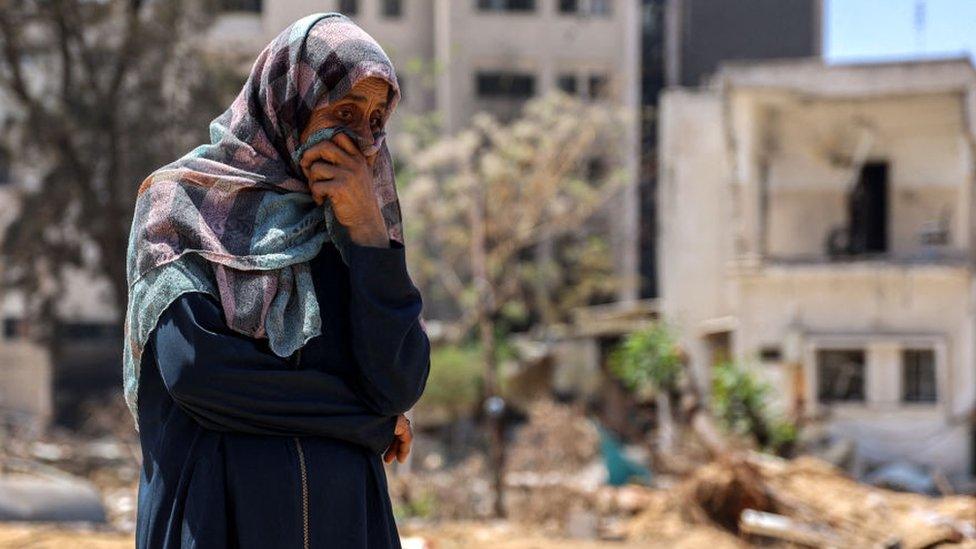Qatar and Egypt Intensify Mediation to Safeguard Civilians and Negotiate Prisoner Exchanges
In a significant diplomatic move, Qatar and Egypt are ramping up their mediation efforts to facilitate an agreement that prioritizes the protection of civilians in ongoing regional conflicts and the exchange of detainees and prisoners. This initiative comes amid escalating tensions and humanitarian crises, underscoring the urgency of international involvement in conflict resolution.
The backdrop to these mediation efforts is a complex web of geopolitical dynamics that have historically influenced the Middle East. Qatar and Egypt, both key players in the region, have long sought to leverage their diplomatic relations to foster stability. Their current focus on civilian protection and prisoner exchanges reflects a broader commitment to humanitarian issues, as international organizations continue to raise alarms about the plight of civilians caught in conflict zones. The significance of this mediation cannot be overstated; as previous reports have indicated, the protection of civilians and the resolution of detainee situations are critical elements in de-escalating tensions and fostering long-term peace.
Recent developments reveal that both nations are actively engaging with various stakeholders to achieve tangible results. Qatar"s Foreign Ministry has emphasized its dedication to reaching an agreement that not only safeguards lives but also addresses the pressing need for the humane treatment of prisoners. In a statement, the Ministry highlighted the importance of dialogue and cooperation, indicating that both nations are prepared to facilitate discussions between conflicting parties. This proactive approach aims to build trust and create a conducive environment for negotiations, which has historically been a challenging endeavor in the region.

Image for Qatar and Egypt intensify mediation to safeguard civilians and negotiate prisoner exchanges
Experts suggest that the collaboration between Qatar and Egypt may serve as a model for similar situations in the Middle East. The dynamics of their partnership can be compared to other recent developments, such as Pakistan"s Foreign Minister"s acknowledgment of strained US ties amid global challenges, which illustrates the complexities of international diplomacy in times of crisis. As both nations navigate their roles, the outcomes of their mediation efforts could significantly influence future diplomatic engagements in the region, offering insights into effective conflict resolution strategies.
The potential impact of these mediation efforts extends beyond immediate humanitarian concerns. Successful negotiations could pave the way for broader peace initiatives, fostering a climate of cooperation and reducing hostility among rival factions. The exchange of detainees is particularly emblematic of goodwill and trust-building, essential components in the journey towards reconciliation. If Qatar and Egypt can facilitate a breakthrough, it could set a precedent for other nations, encouraging them to engage in similar diplomatic efforts. Moreover, the implications of this mediation could resonate with ongoing global conflicts; for instance, the situation in Sudan, where over 1.3 million refugees have returned home amid ongoing conflict, highlights the need for sustained international attention and intervention.
Looking ahead, the future of Qatar and Egypt"s mediation efforts will depend on the willingness of all parties involved to engage in constructive dialogue. As both nations continue to advocate for civilian protection and humane treatment of detainees, their success could redefine the landscape of Middle Eastern diplomacy. Observers are keenly watching how these developments unfold, as the outcomes may not only influence regional stability but also inspire a renewed focus on humanitarian issues in international relations. As the world grapples with escalating conflicts and humanitarian crises, the actions taken by Qatar and Egypt could serve as a beacon of hope for a more peaceful and cooperative future.


![[Video] Heavy clashes and gunfire reported in Baghdad, Iraq](/_next/image?url=%2Fapi%2Fimage%2Fthumbnails%2Fthumbnail-1768342239932-848qsh-thumbnail.jpg&w=3840&q=75)




![[Video] Gunfire between Iraqi security forces and Sadr militias in Baghdad](/_next/image?url=%2Fapi%2Fimage%2Fthumbnails%2Fthumbnail-1768343508874-4redb-thumbnail.jpg&w=3840&q=75)
